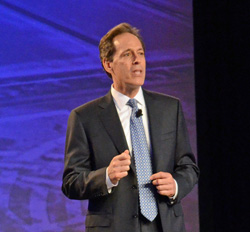Cutting back on your sugar intake? Than consider using it to create a battery. Not really but doesn’t it sound cool? A Virgina Tech research team did just this and has developed a battery that runs on sugar. The research team believes it has an energy density unmatched by any on the market and could lead to the replacement of conventional batteries with ones that are cheaper, refillable and biodegradable.
The findings from Y.H. Percival Zhang, an associate professor of biological systems engineering in the College of Agriculture and Life Sciences and the College of Engineering, were published yesterday in the journal Nature Communications.
 While other sugar batteries have been developed, Zhang said his has an energy density an order of magnitude higher than others, allowing it to run longer before needing to be refueled. In as soon as three years, his new battery could be running a myriad of electronic gadgets.
While other sugar batteries have been developed, Zhang said his has an energy density an order of magnitude higher than others, allowing it to run longer before needing to be refueled. In as soon as three years, his new battery could be running a myriad of electronic gadgets.
“Sugar is a perfect energy storage compound in nature,” Zhang said. “So it’s only logical that we try to harness this natural power in an environmentally friendly way to produce a battery.”
This is one of Zhang’s recent successes that utilize a series of enzymes mixed together in combinations not found in nature. He has published articles on creating edible starch from non-food plants and developed a new way to extract hydrogen in an economical and environmentally friendly way that can be used to power vehicles.
In this newest development, Zhang and his colleagues constructed a non-natural synthetic enzymatic pathway that strip all charge potentials from the sugar to generate electricity in an enzymatic fuel cell. Then, low-cost biocatalyst enzymes are used as catalyst instead of costly platinum, which is typically used in conventional batteries.
Like all fuel cells, the sugar battery combines fuel — in this case, maltodextrin, a polysaccharide made from partial hydrolysis of starch — with air to generate electricity and water as the main byproducts.
Zang explained, “We are releasing all electron charges stored in the sugar solution slowly step-by-step by using an enzyme cascade.”
Different from hydrogen fuel cells and direct methanol fuel cells, the fuel sugar solution is neither explosive nor flammable and has a higher energy storage density. The enzymes and fuels used to build the device are also biodegradable.
 The Chair of the National Biodiesel Board is Steven J. Levy, Sprague Operating Resources LLC. This is his first conference as the Chair so when he spoke at today’s general session he told a little bit about himself and his background. He’s the first NBB Chair who is not a farmer, producer or from the Midwest.
The Chair of the National Biodiesel Board is Steven J. Levy, Sprague Operating Resources LLC. This is his first conference as the Chair so when he spoke at today’s general session he told a little bit about himself and his background. He’s the first NBB Chair who is not a farmer, producer or from the Midwest.









